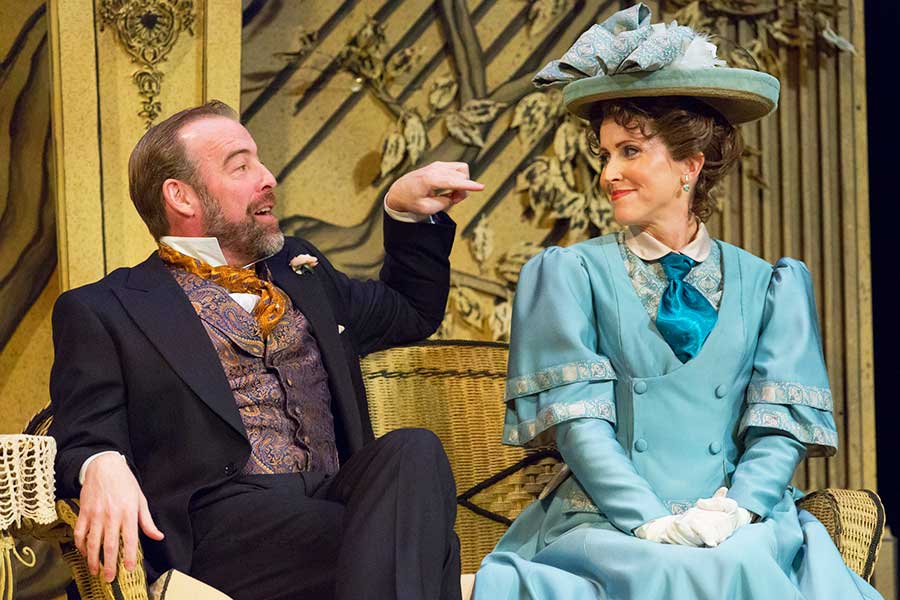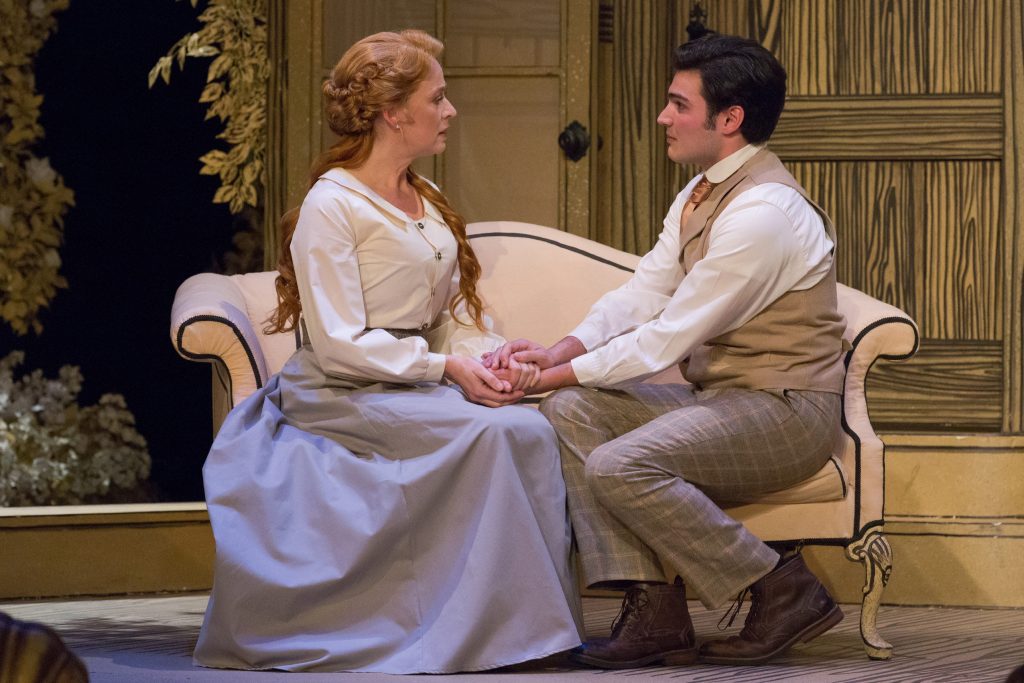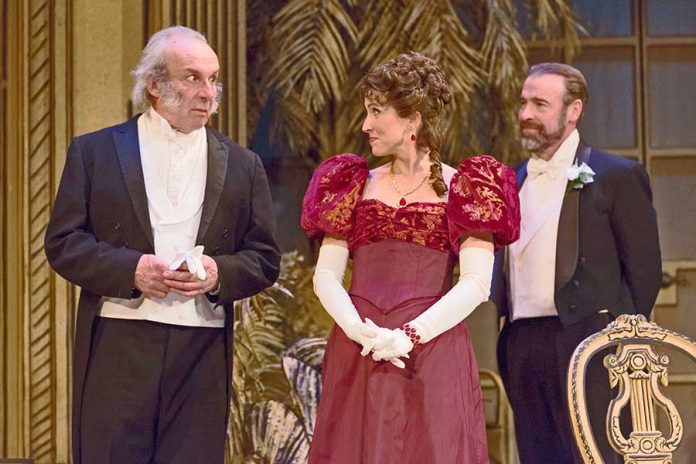What do you do when a play feels like a discovery, but the production of it comes across as a hindrance? Oscar Wilde’s “A Woman of No Importance,” on the Walnut Street Theatre’s main stage through March 1, left me to ponder that predicament.
History regards Wilde as one of the English-speaking world’s most notable queer artists — yet revivals of his plays beyond the seminal “Importance of Being Earnest” are comparatively rare. “A Woman of No Importance,” which debuted in 1893 and first came to Philadelphia shortly thereafter, suggests that lesser-known entries in the playwright’s canon deserve a second look.
A drawing-room comedy of manners, the script contains the crackling wit that came to define Wilde’s literary style. Bon mots fly fast and loose, and there’s hardly a stretch that doesn’t include an eminently quotable line or two. (A personal favorite: “The happiness of a married man depends on the people he has not married.”)
Perhaps inspired by his travels in America a decade before the play’s writing, Wilde probes class consciousness by considering the clash between waning Eurocentrism and the supposed egalitarianism of the new world. This takes two forms: in the person of Hester Worsley (Audrey Ward), who scandalizes British society by calling its virtues into question; and by the familial triangle involving the caddish Lord Illingworth (Ian Merrill Peakes), the pious Rachel Arbuthnot (Alicia Roper) and their now-grown love child, Gerald (Brandon O’Rourke).
Wilde bakes considerable humor into the interactions between Miss Worsley and her aristocratic hosts, who boast ridiculous-sounding names like Lady Caroline Pontefract (Mary Martello) and Lady Strutfield (Jessica Bedford). But these scenes exist for more than their comic potential.
The American interloper holds a mirror up to a dying breed of nobility, much as Wilde himself forced his culture and class to examine their values (or lack thereof) by his iconoclastic way of living. In many ways, “A Woman of No Importance” anticipates the politically charged plays of George Bernard Shaw, who would taste his first solid success a year later with “Arms and the Man.”
But, the current production, under the direction of Walnut Street Theatre’s president and producing artistic director Bernard Havard, privileges style over substance. The crackle of the text rarely translates to the performances or the static staging, which mostly finds the actors arranged in symmetrical tableaux, delivering their lines directly to the audience. Ward, a sophomore at Temple, doesn’t yet possess the firebrand spark needed to communicate Hester’s rebellious nature. Similarly, O’Rourke’s performance as the status-minded Gerald is stylish but bland.

The action gains in importance whenever the woman of no importance herself takes center stage. Roper locates a quiet dignity in Rachel Arbuthnot’s determination to wrest her child from the claws of the man who abandoned her to ignominy 20 years earlier. Although Wilde’s writing for this character can sometimes turn lugubrious — and his politics surrounding childbirth outside marriage are surprisingly reactionary, even by Victorian standards — Roper commits to the part with admirable restraint. It makes a welcome contrast to the frenetic, and frankly distracting, antics of Peakes, her frequent scene partner.

Alicia Roper and Brandon O’Rourke. Photo by Mark Garvin
Veteran local actor Peter Schmitz takes on the relatively minor role of Archdeacon Daubeny and proves that there are no small parts. His every line is a master class of comic understatement and Wildean élan. Mary Folino’s costumes look good enough to eat.
Yet the overall production resembles Roman Tatarowicz’s trompe l’oeil sets — handsome from a distance but shallow up close. Oscar Wilde, a queer playwright of great importance, deserves better.
“A Woman of No Importance” continues through March 1 at Walnut Street Theatre, 825 Walnut Street. For tickets and information, visit walnutstreettheatre.org.
